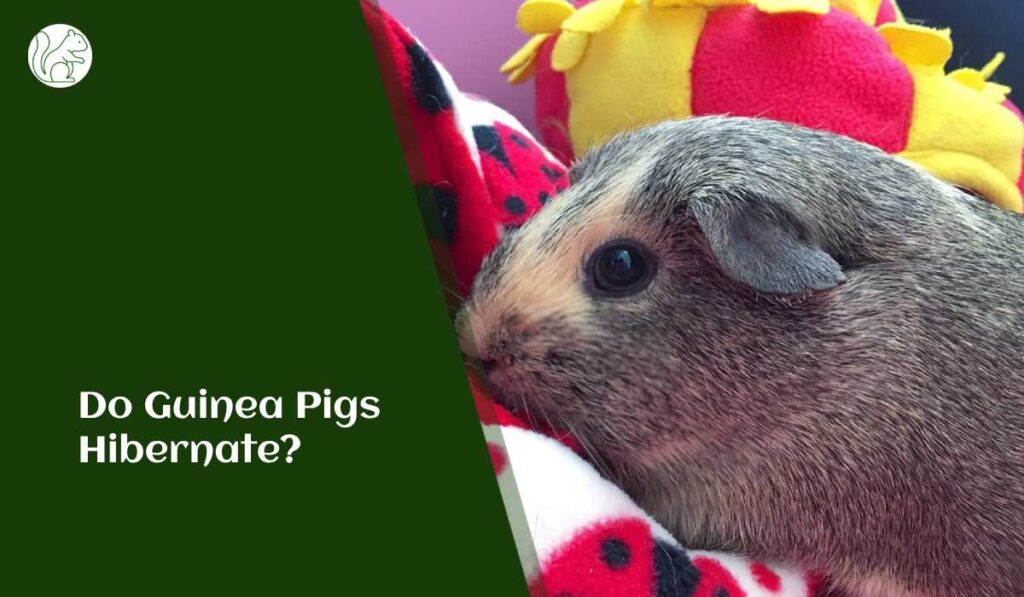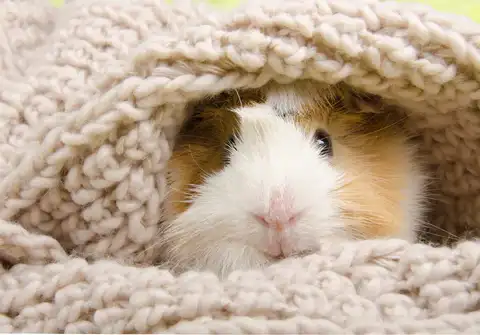Guinea pigs, those cute and furry little creatures that have captured the hearts of pet lovers around the world, have some intriguing habits that often leave their owners curious. One question that frequently arises is whether do guinea pigs hibernate? like some other animals during the cold winter months. In this comprehensive article, we’ll dive into the sleeping habits of guinea pigs and explore whether hibernation is a part of their natural behavior.

What is Hibernation?
Before we answer the main question, let’s clarify what hibernation means. Hibernation is a survival mechanism that some animals adopt to conserve energy during harsh weather conditions, especially in winter when food is scarce. During hibernation, the animal’s metabolic rate decreases significantly, and their body temperature drops, allowing them to stay dormant for extended periods.
Guinea Pig Natural Habitat
To understand the hibernation patterns of guinea pigs, it’s essential to look at their natural habitat. Guinea pigs are native to South America, where the climate is relatively stable throughout the year, with no extreme winters. In the wild, guinea pigs live in grasslands, savannas, and forests, where they can burrow for shelter and find food easily.
Guinea Pigs and Temperature Regulation
Unlike some small animals that hibernate, guinea pigs are not well-equipped to handle drastic temperature changes. They are sensitive to cold weather and prefer temperatures between 65°F to 75°F (18°C to 24°C). Anything below this range can be stressful for them and may lead to health issues.
Do Guinea Pigs Hibernate?
After extensive research and observation, it has been established that guinea pigs do not hibernate. In their natural habitat, they don’t experience the extreme cold that triggers hibernation in some other animals. Instead, guinea pigs have developed certain coping mechanisms to survive the cooler temperatures.
How Do Guinea Pigs Survive Winter?
During colder months, guinea pigs adapt to the changing weather by growing a thicker coat. This helps them stay warm and comfortable despite the slight drop in temperatures. Additionally, they tend to huddle together with other guinea pigs, sharing body heat and creating a sense of camaraderie within their social groups.

Tips to Ensure Your Guinea Pig’s Comfort in Winter
As responsible guinea pig owners, it’s essential to ensure the well-being of our furry friends during the winter season. Here are some tips to keep your guinea pig comfortable:
- Indoor Housing: If you keep your guinea pigs in outdoor hutches, consider moving them indoors during winter to protect them from the cold.
- Provide Adequate Bedding: Make sure to provide ample bedding in their enclosure. This helps in insulation and keeps them warm.
- Warm Hideouts: Offer cozy hideouts or small shelters inside their enclosure, allowing them to snuggle up and feel secure.
- Keep the Room Warm: If you cannot bring them indoors, place their enclosure in a room with regulated heating to maintain a comfortable temperature.
- Monitor Water Temperature: Check the temperature of their drinking water regularly to prevent it from freezing.
- Proper Nutrition: Ensure your guinea pigs receive a balanced diet with sufficient vitamin C, as this is essential for their health during colder months.
Monitoring Your Pet’s Health
As temperatures drop, it becomes even more vital to keep an eye on your guinea pig’s health. Regularly check for signs of illness or any changes in behavior. If you notice anything unusual, consult a veterinarian who is knowledgeable about guinea pigs.
Conclusion
In conclusion, guinea pigs do not hibernate. Instead, they adapt to the changing weather by growing thicker fur and seeking warmth through social interaction. As responsible pet owners, we must provide them with a comfortable living environment during winter to ensure their well-being and happiness. By following the tips mentioned above, you can ensure that your adorable guinea pigs stay healthy and content throughout the colder months. So, enjoy your time with these little companions and keep them cozy all winter long!
